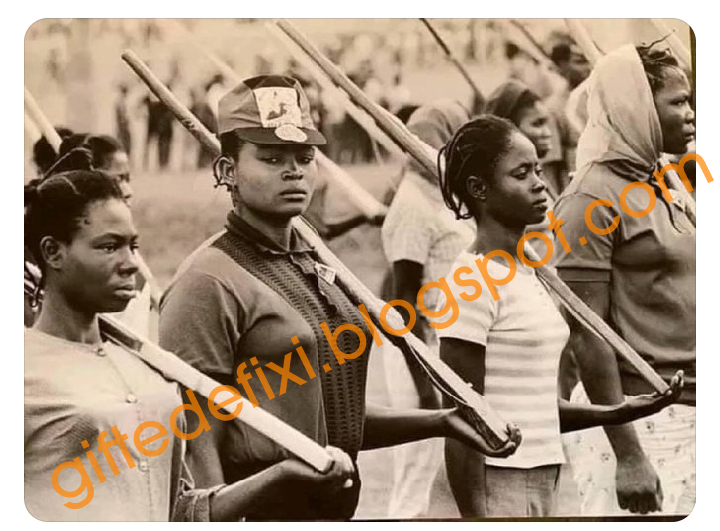 the Biafran War, was a civil war fought between Nigeria and the Republic of Biafra, a secessionist state which had declared its independence from Nigeria in 1967. Nigeria was led by General Yakubu Gowon, while Biafra was led by Lieutenant Colonel Chukwuemeka "Emeka" Odumegwu Ojukwu. Biafra represented the nationalist aspirations of the Igbo ethnic group, whose leadership felt they could no longer coexist with the federal government dominated by the interests of the Muslim Hausa-Fulanis of Northern Nigeria.
the Biafran War, was a civil war fought between Nigeria and the Republic of Biafra, a secessionist state which had declared its independence from Nigeria in 1967. Nigeria was led by General Yakubu Gowon, while Biafra was led by Lieutenant Colonel Chukwuemeka "Emeka" Odumegwu Ojukwu. Biafra represented the nationalist aspirations of the Igbo ethnic group, whose leadership felt they could no longer coexist with the federal government dominated by the interests of the Muslim Hausa-Fulanis of Northern Nigeria.The Cause Of The War
The conflict resulted from political, economic, ethnic, cultural and religious tensions which preceded the United Kingdom's formal decolonisation of Nigeria from 1960 to 1963. Immediate causes of the war in 1966 included a military coup, a counter-coup, and anti-Igbo pogroms in Northern Nigeria.
 SEE ALSO- 14 Rules Wise Men Use You Need To Learn
SEE ALSO- 14 Rules Wise Men Use You Need To LearnWithin a year, Nigerian government troops surrounded Biafra, and captured coastal oil facilities and the city of Port Harcourt. A blockade was imposed as a deliberate policy during the ensuing stalemate which led to the mass starvation of Biafran civilians. During the two and half years of the war, there were about 100,000 overall military casualties, while between 500,000 and 2 million Biafran civilians died of starvation.
Alongside the concurrent Vietnam War, the Nigerian Civil War was one of the first wars in human history to be televised to a global audience. In mid-1968, images of malnourished and starving Biafran children saturated the mass media of Western countries. The plight of the starving Biafrans became a cause célèbre in foreign countries, enabling a significant rise in the funding and prominence of international non-governmental organisations (NGOs). Biafra received international humanitarian aid from civilians during the Biafran airlift, an event which inspired the formation of Doctors Without Borders following the end of the war. The United Kingdom and the Soviet Union were the main supporters of the Nigerian government, while France, Israel (after 1968) and some other countries supported Biafra.
ALSO SEE- See What Fashola Have To Say About Obasanjo Hating Tinubu



Comments
Post a Comment